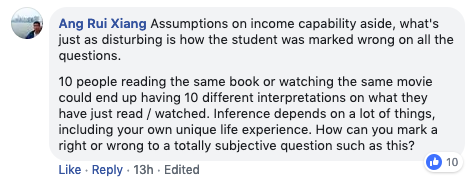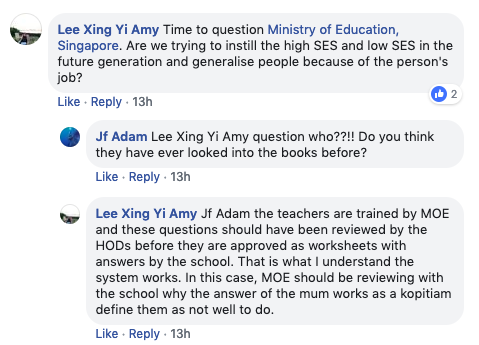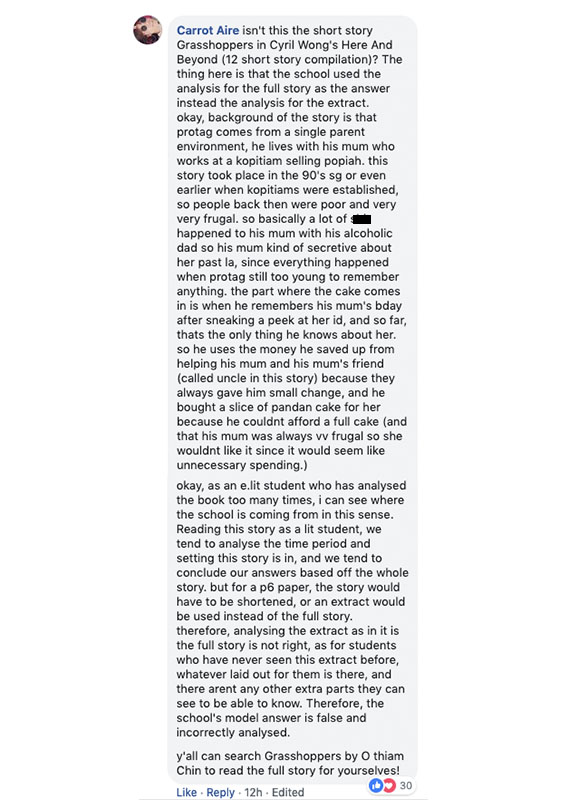Internet triggered over Primary 6 question implying hawkers not 'well-to-do'


It's 2019 and there's a new high-SES (socio-economic status), low-SES controversy circulating on social media.
This time, the hullabaloo revolves around a Primary 6 question which seemingly implies that children of hawkers belong to families that are not well-to-do.
Within two days of 25-year-old Rainbow Lim uploading a photo of the contentious question onto Facebook, her post garnered over 2,400 reactions, 540 comments and 4,000 shares.
According to the post, students were required to analyse a story, state whether they think a given statement is true or false and provide a reason. Lim, who teaches English tuition, wrote that her student's answer for why the author of the story does not come from a well-to-do family was because he can only afford to buy a slice of cake rather than the entire cake for his mother's birthday.
Makes sense? But her student was penalised, as the model answer is, "The author's mother worked at a kopitiam".
The answer caused further confusion for the student as her father works at a hawker centre and she did not consider her family poor. "She was frustrated that people would assume that about hawkers, and she found it very unfair," Lim wrote.
Analysing the passage further, Lim gave more context, writing that she originally "thought the (author's) mother worked as a cleaner, but it turned out she sold popiah.
"So I scanned the essay for any hints that, maybe, business wasn't good or that they weren't earning enough from simply selling popiah at a kopitiam, but the whole paragraph depicting the mother at her stall was about the huge number of customers that kept coming and coming and how she was so busy that her son needed to step in and help," her caption continued.
"Why would you teach students that just (because) someone works at a kopitiam it means that they're not well-to-do? I don't understand. And neither does my P6 girl," she concluded.
INTERNET TRIGGERED
Lim's post riled up Facebook users over generalising backgrounds and making assumptions based on incomes.


Some tagged the Ministry of Education (MOE) seeking a response and flamed the school for allowing the question. We've also reached out to MOE for comment.

Many cited examples of hawkers who have broken stereotypes of hawkers being poor.





BACKGROUND
Within the comments, Lim uploaded a photo of the extract given to her student to analyse.

Titled Grasshoppers, the story comes from award-winning Singaporean writer O Thiam Chin and can be found here.
A commenter who studied English Literature gave more insight as to why the model answer might be the way it is.
According to her, the answer would technically be correct given the entirety of the story. However, as this is a Primary 6 paper, the story was significantly shortened, omitting details like how the author comes from a single-parent household.
Without the extra context, students would have to answer based on whatever is given to them.

For more original AsiaOne articles, visit here.